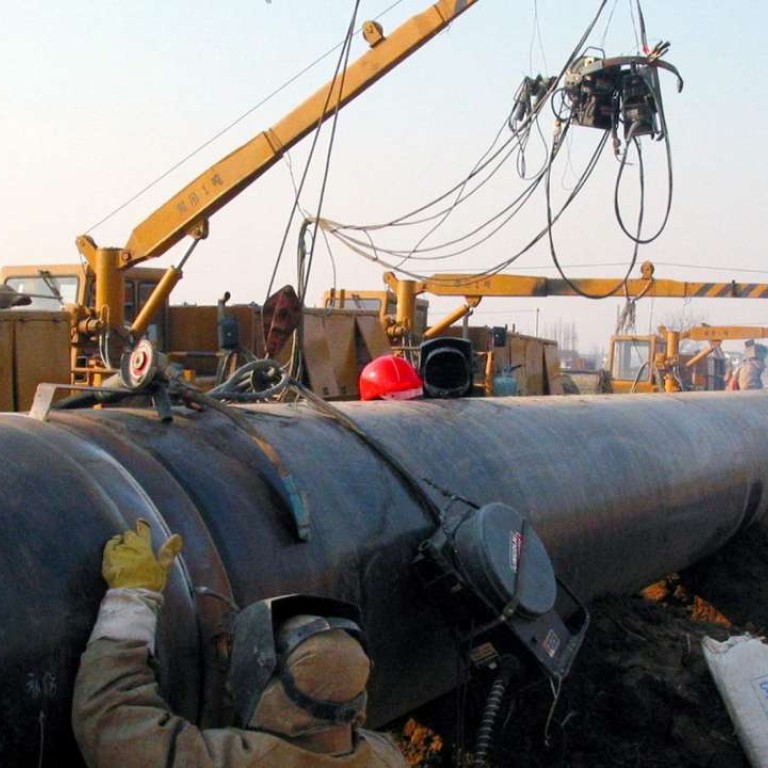
Cheung Kong Infrastructure’s bid for Duet faces tough scrutiny in Canberra, say analysts
Analysts cite previous rejection of CKI’s bid for electricity supplier Ausgrid as a possible red flag
Cheung Kong Infrastructure (CKI)’s unsolicited A$7.3 billion (HK$42 billion) bid to take over Australian electricity and natural gas distributor Duet Group faces the risk of being rejected by Canberra, but could bring operational advantages if approved, according to analysts.
They cited the fact that CKI’s bid for Duet’s peer Ausgrid was rejected in August on the grounds that it went against national interests, and concerns that the deal might give CKI a dominant position in the market as it already owns similar assets in regions near Duet’s operations.
“One possible complication would be that post-acquisition CKI and [39 per cent-owned utilities firm Power Assets] would end up owning three of the five power distribution networks [in Victoria State] and two of the three Victorian gas networks,” UBS head of Asian utilities research Simon Powell wrote in a note on Tuesday.
Australian regulators may have to look closely at a deal that puts more assets into single ownership
“While these are regulated businesses which do not compete with each other, Australian regulators may have to look closely at a deal that puts more assets into single ownership.”
Australian treasurer Scott Morrison rejected bids by CKI and state-owned power distribution titan State Grid Corp of China for 50.4 per cent of Ausgrid, which supplies electricity to Sydney and neighbouring areas, citing unspecified national interest concerns. CKI is part of the business empire of Hong Kong tycoon Li Ka-shing.
Sydney-based Duet said on Sunday it has received an “unsolicited, indicative, incomplete, non-binding and conditional proposal” from CKI to pay cash for all of its shares at A$3 each, a 27.7 per cent premium to Friday’s closing price, adding that its board has been evaluating the proposal.
Duet owns 66 per cent of United Energy, which distributes power to southeast Melbourne and the Mornington Peninsula of Victoria state.
CKI and Power Assets together already own 51 per cent of CitiPower, which distributes power to 327,000 customers in the central business district of Melbourne and its suburbs.
They also own 51 per cent of Powercor, which supplies electricity to 768,000 customers in the state of Victoria where Melbourne is the capital.
Duet wholly owns the 1,600-kilometre Dampier-to-Bunbury natural gas pipeline in Western Australia state, and all of Multinet Gas which distributes gas to eastern and southern suburbs of Melbourne.
CKI and Power Asset own a combined 72.5 per cent stake in Australian Gas Networks - previously known as Envestra - which operates distribution networks in various cities and states in Australia including Melbourne and Victoria.
They also have a 50 per cent interest in SA Power Networks that supplies to 850,000 customers in South Australia state.
“We believe the implied valuations from [CKI’s bid] are justified because of the natural synergies in terms of geographies and operational leverage,” Evan Li, HSBC’s head of Asia-Pacific utility and alternative energy research wrote in a note.
“We note the United Kingdom and Australian utilities acquired by CKI over the past few years have beaten management’s expectations [on] investment returns, and CKI has a strong track record of maintaining at least 10 to 12 per cent [return before debt leverage] on new investments,” he added, referring to improvements in post-acquisition returns at Northumbrian Water and Envestra.
He said CKI’s bid is in line with the 30 to 60 per cent premiums paid in excess of regulated asset base in previous transactions in Australia.
Powell noted CKI’s bid for Duet corresponds to an enterprise value-to-regulated asset base of 1.6 times, close to the high end of Duet’s historical range and equal to the 1.6 multiple in the acquisition of New South Wales state power transmission grids operator Transgrid.
Enterprise value is the sum of market capitalisation and debt.
“We believe Duet has a higher risk profile relative to the other listed Australian utilities because [it has some] remote power generation business [that] is unregulated,” Powell added.
If CKI finances 60 per cent of the acquisition through debt, its net profit next year could be boosted by 12 per cent, although its net debt-to-shareholders’ equity ratio would climb to 22.8 per cent from 5.4 per cent, according to the projections by Dennis Ip, head of utilities and renewables research at Daiwa Capital Markets.
Although neither CKI nor Power Assets have commented, analysts expect the duo to join forces to bid for Duet as they have done for other assets before, given Power Assets had a cash pile of HK$66 billion at the end of June, compared to CKI’s HK$11.3 billion.
Power Assets has been under pressure to find acquisition targets after amassing its huge cash pile when it sold down its stake in its Hong Kong Utilities unit and separately listed it early in 2014.
Power Assets’ board decided in May against declaring a special dividend despite more than two years having passed since the separate listing, and it has yet to deploy the majority of the cash pile.
Management cited potential investment in three projects at the time for the decision, including a “very substantial” one which analysts believed at the time was referring to Ausgrid.

